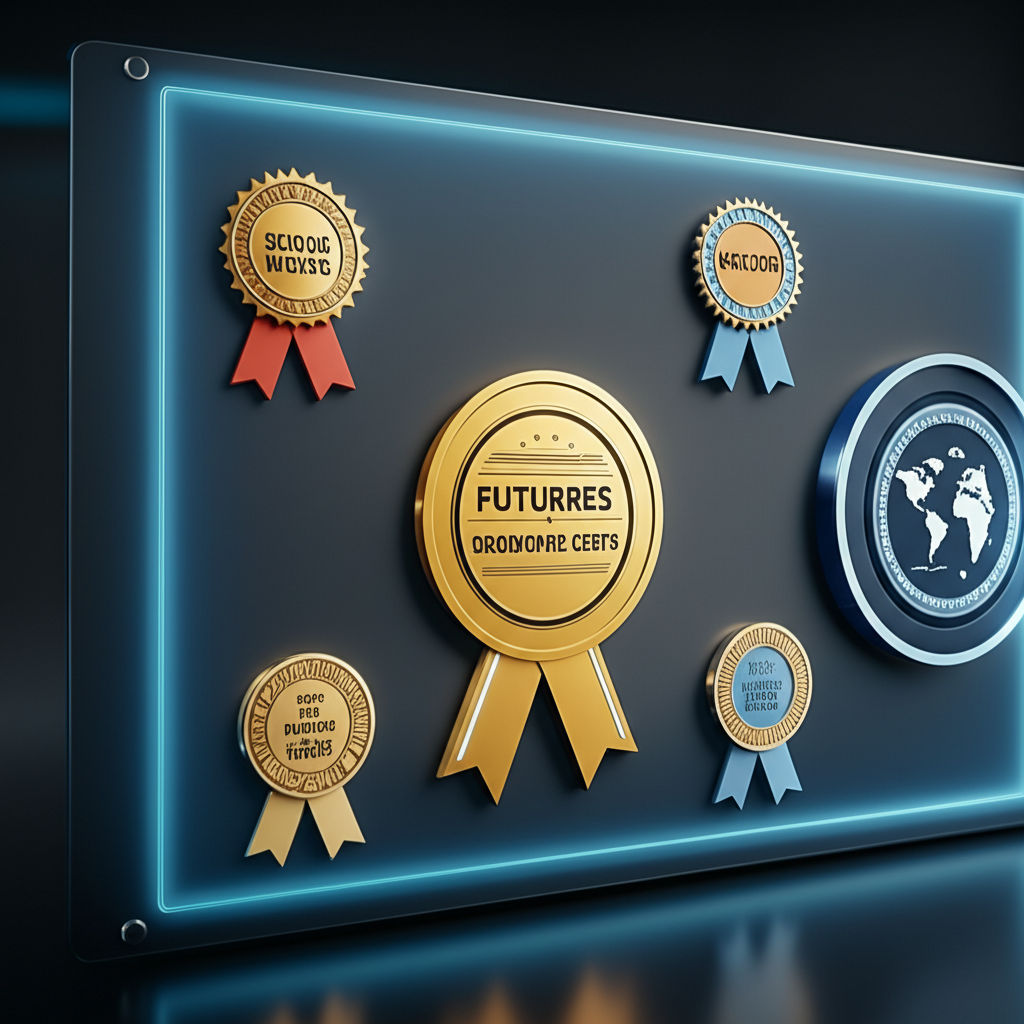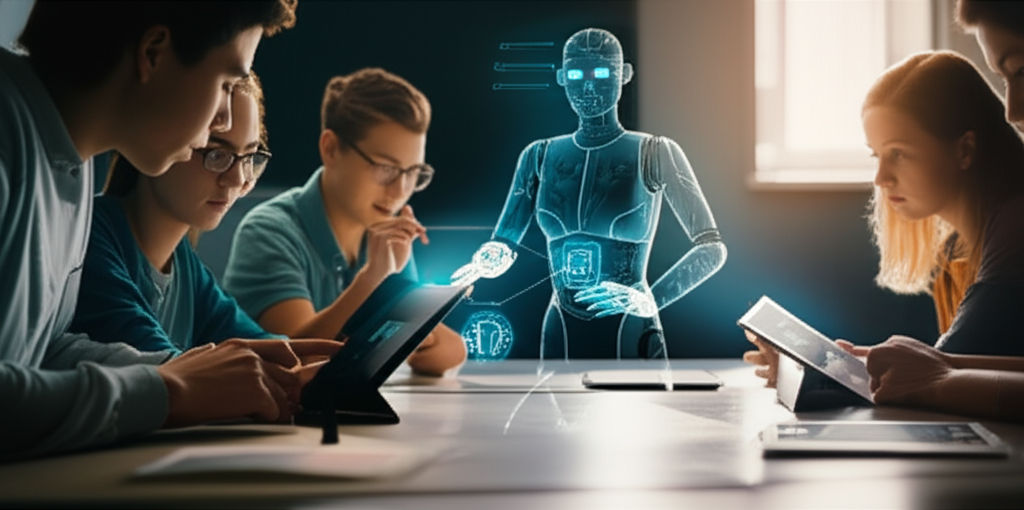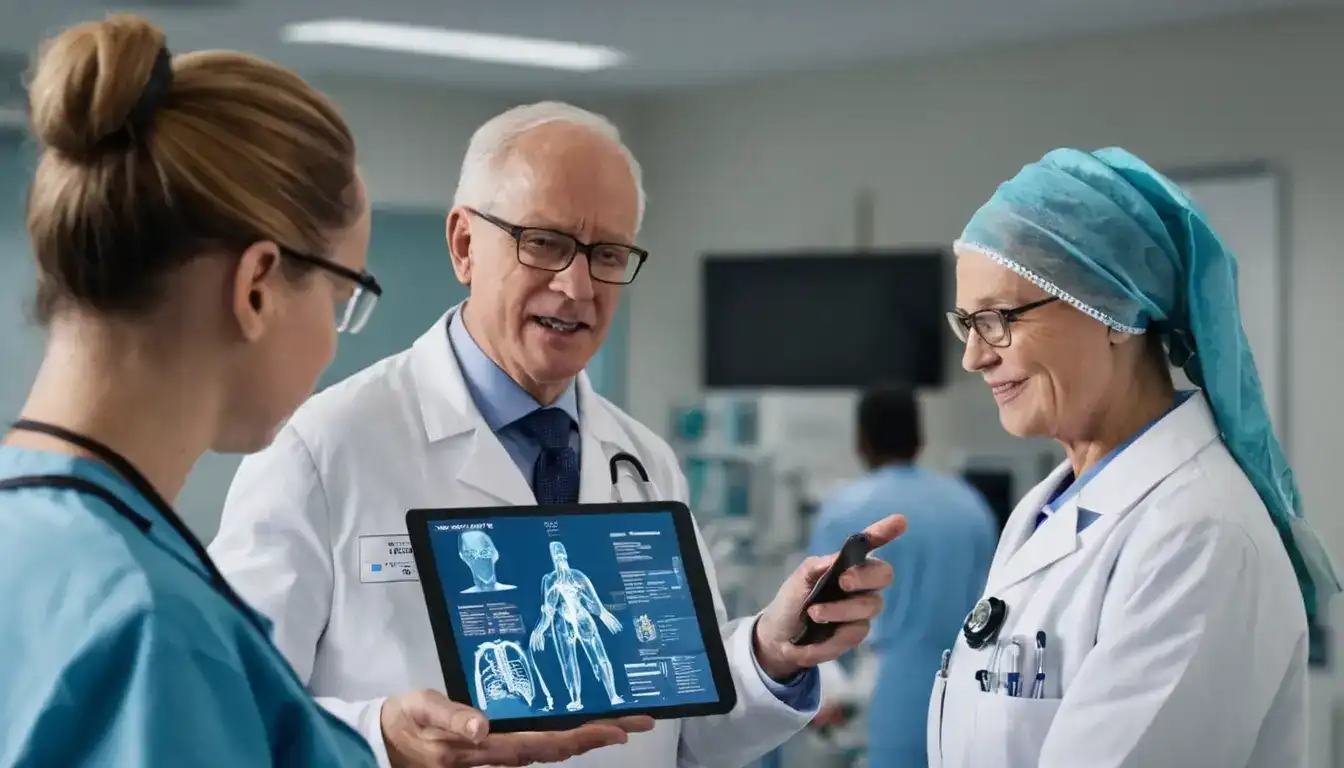Media Literacy: Navigate Digital Info Future
Emily Willis

Photo: Media Literacy: Navigate Digital Info Future
The search results confirm the importance of media literacy in the digital age, its definition, key skills involved (critical thinking, source verification, spotting bias, understanding algorithms), challenges like misinformation/disinformation and filter bubbles, and the concept of digital citizenship. I have enough information to proceed with the article outline and content generation.
Primary Keywords: Media Literacy, Digital Information Future, Navigating Digital Information, Digital Literacy. Secondary Keywords: Fake News, Misinformation, Disinformation, Critical Thinking, Online Safety, Source Verification, Fact-Checking, Echo Chambers, Filter Bubbles, Algorithmic Bias, Digital Citizenship, Information Overload, Evaluating Sources, Responsible Digital Use, Online Content Evaluation, Digital Skills.
I will ensure these are woven naturally throughout the article, aiming for the specified density. I will also make sure the tone is friendly and accessible for a general audience, with a mix of sentence structures and actionable advice.
Media Literacy: Your Essential Compass for Navigating the Digital Information Future
Remember a time when news came primarily from a morning newspaper or the evening broadcast? It feels like ages ago, doesn't it? Today, our world is awash in information, flowing endlessly from smartphones, tablets, and computers. We scroll, click, and share, often without a second thought. But this constant cascade of content, while incredibly powerful, also presents a unique challenge: how do we tell what's real, what's reliable, and what truly matters? This is where media literacy comes in – it's your superpower for thriving in our incredible, yet sometimes overwhelming, digital information future.
Think of media literacy as your personal GPS for the internet. It helps you understand the messages you encounter, assess their credibility, and engage with the digital world safely and thoughtfully. In an era where nearly 66% of the global population is connected to the internet, understanding and evaluating online content is paramount. It's not just about consuming; it's about becoming an active, informed, and responsible participant.
What Exactly is Media Literacy? More Than Just Reading and Writing!
At its core, media literacy expands the traditional idea of "literacy." It's no longer just about reading words on a page or writing sentences. Today, messages come in countless forms – videos, memes, podcasts, social media posts, interactive graphics, and more. Media literacy is the ability to access, analyze, evaluate, and create media in various forms. It empowers you to decode messages, understand the systems they exist within, assess their influence on your thoughts and feelings, and even create your own media thoughtfully and conscientiously.
It's about asking crucial questions: Who created this message? Why was it made? What techniques are being used to get my attention? What's the potential impact of this message? By understanding these elements, you gain control over what you consume and how it shapes your understanding of the world.
The Digital Deluge: Why Media Literacy is More Crucial Than Ever
Our modern world is characterized by an unprecedented information overload. Every minute, staggering amounts of data, news, and opinions are generated and shared. While this access to information is a huge benefit, it also creates fertile ground for challenges that media literacy helps us overcome.
The Rise of Misinformation and Disinformation: The "Fake News" Challenge
You've heard the terms "fake news," "misinformation," and "disinformation." These aren't just buzzwords; they represent a real threat to our ability to make informed decisions.
- Misinformation is false or inaccurate information, regardless of intent. Someone might share it genuinely believing it's true.
- Disinformation is false information deliberately created with the intention to mislead or manipulate. This includes "fake news" stories specifically fabricated to deceive.
These can spread like wildfire online, often amplified by social media algorithms. Without strong media literacy skills, it's easy to fall prey to sensationalized headlines or fabricated stories, which can influence everything from your health decisions to your political views.
Trapped in the Bubble: Understanding Echo Chambers and Filter Bubbles
Have you ever noticed how your social media feed seems to show you content that mostly aligns with your existing beliefs? This isn't a coincidence; it's often the result of algorithms creating "filter bubbles" and "echo chambers."
- A filter bubble is a personalized online environment where algorithms selectively guess what information you'd like to see based on your past behavior, search history, and other data. This can isolate you from opposing viewpoints, confirming your existing biases.
- Echo chambers are similar, but they emphasize the role of human interaction. Within an echo chamber, you're primarily exposed to views and opinions you already agree with, often reinforced by like-minded friends and online communities.
While initially designed to enhance user experience by showing you more of what you like, these bubbles can inadvertently limit your exposure to diverse perspectives and critical information. They can even encourage the adoption of more extreme ideological positions.
The Future is Now: AI and Deepfakes
Looking ahead, the challenges are only growing. Modern Artificial Intelligence (AI) can create incredibly lifelike images, videos (deepfakes), and audio, making it even harder to distinguish reality from fabrication. AI-driven bots can also flood social media with false stories, making them appear widely believed. This underscores the continuous need for advanced digital literacy skills.
Your Toolkit for Navigating the Digital Future: Practical Media Literacy Skills
So, how do you equip yourself to navigate this complex digital landscape? It starts with developing a set of practical media literacy skills.
1. Critical Thinking: Beyond the Headline
This is the cornerstone of media literacy. Critical thinking is the ability to objectively analyze information, make reasoned judgments, and solve problems systematically. When applied to media, it means not taking everything at face value.
- Ask "Why?": Why was this content created? What's its purpose? Is it to inform, persuade, entertain, or sell something?
- Question Assumptions: What underlying assumptions or biases might be present in the message?
- Consider the Source's Motive: Is there a hidden agenda? Is the content designed to evoke a strong emotional response, like anger or fear?
Developing these skills helps you become less passive in your consumption of content and more empowered to resist manipulative messages.
2. Source Verification: Who Said That, and Why?
In the digital age, anyone can publish anything. This makes assessing the credibility and reliability of sources essential.
- Check the Source Itself: Is the website reputable? Look for an "About Us" page for detailed background information and contact details. Does the URL seem legitimate (e.g., avoiding ".com.co" or ".lo" endings)? Are there excessive ads or obvious spelling/grammar mistakes, which can be red flags?
- Investigate the Author: Is there a named author? If so, do a quick search to learn about their professional experience, educational background, and any potential biases.
- Lateral Reading: Instead of staying on the same website, open new tabs and search for information about the source itself or the author. What do other, trusted sources say about them? This "lateral reading" helps you determine their credibility.
- Cross-Reference Information: If a story is important, check if other reputable news sites are reporting the same information. If not, be skeptical.
3. Spotting Bias: Everyone Has a Perspective
Every piece of media, whether intentionally or not, carries a perspective. Recognizing bias is a key media literacy skill.
- Look for Loaded Language: Are certain words used to evoke strong emotions or present a one-sided view?
- Consider What's Missing: Is important context omitted? Are alternative viewpoints ignored?
- Analyze Visuals: How do images, videos, or graphics influence your feelings or understanding? Are they used to sensationalize or mislead?
Understanding bias helps you form opinions based on truthful information, not misrepresented or sensationalized content.
4. Understanding Algorithms: The Hidden Curators
As we discussed, algorithms shape our online experience. Knowing how they work is part of digital literacy.
- Personalized Feeds: Remember that social media and search engines prioritize content they think you'll engage with, based on your past interactions.
- Diversify Your Information Diet: Actively seek out news and information from a variety of sources, including those that might challenge your existing views. This helps "pop" your filter bubble.
- Adjust Privacy Settings: Be mindful of the data you share, as this data fuels the algorithms that personalize your content.
Actionable Steps: Becoming a Media-Literate Digital Citizen
Becoming a media-literate digital citizen isn't just about avoiding pitfalls; it's about actively contributing to a more informed and responsible online world. Here are some actionable steps you can take:
- Pause Before You Share: Before hitting that "share" button, take a moment. Ask yourself: Is this information accurate? Have I verified it? What impact might sharing this have? Research shows that people who receive media literacy education are better at identifying fake information and are less likely to share inaccurate content online.
- Cross-Reference and Fact-Check: Make it a habit to check information against multiple reliable sources. Use dedicated fact-checking websites like Snopes.com, FactCheck.org, or PolitiFact.com.
Latest ✨
View Allsustainable living and provides practical tips for integrating eco-friendly practices into daily life. It emphasizes the benefits of reducing environmental impact, combating climate change, conserving resources, saving money, and living a healthier life.
Emily Willis
AI is no longer a futuristic concept, it is shaping our world at an unprecedented pace. In 2024 and beyond, AI trends are likely to dominate in various industries. Generative AI is expected to revolutionize content creation, design, and product development. In healthcare, AI will lead to personalized medicine, drug discovery acceleration, improved diagnostics, and remote patient monitoring.
Emily Willis
Future-proof your career with micro-credentials & digital badges. Gain targeted skills fast & stay relevant in a rapidly changing world.
Emily Willis
Unlock the potential of flexible school schedules! Understand benefits, challenges, types, and real-world examples for modern education.
Emily Willis
Business
View All
June 9, 2025
Craft a Winning Pitch DeckCraft a winning pitch deck! Learn to transform your vision into a compelling presentation that captivates investors & unlocks opportunities.
Emily Willis

June 8, 2025
Gain Competitive Edge in Any MarketMaster competitive advantage! Discover actionable strategies for business growth, market leadership, and differentiation in any market.
Emily Willis

June 8, 2025
Handle Complaints EffectivelyMaster the art of handling complaints effectively. Learn the psychology, actionable steps, and how to turn feedback into opportunities for growth and stronger r...
Emily Willis
Economy
View AllUncover the dynamic relationship between tariffs and global trade patterns. Explore how tariff changes reshape trade flows, impact consumers and businesses, and drive strategic adaptations in supply chains and markets. Discover insights from real-world cases and learn strategies for businesses to thrive in this evolving landscape.
Read MoreFiscal policy: The government's powerful tool of taxes & spending that shapes the economy, jobs, and your daily life. Essential citizen guide.
Read MoreBoost your business profitability! Discover how cost analysis empowers informed decisions, optimizes spending, and fuels sustainable growth.
Read MoreEntertainment
View All
August 5, 2024
Classic Films: Timeless Masterpieces in the Age of StreamingClassic films may seem outdated in today's world of instant gratification and endless streaming options, but they offer enduring stories, masterful storytelling, historical insights, technical innovation, and artistic value that surpass modern offerings. While classic films face challenges such as accessibility and pacing, there are ways to overcome these obstacles, such as using streaming services, visiting local libraries, attending film festivals, and utilizing online resources.
Emily Willis
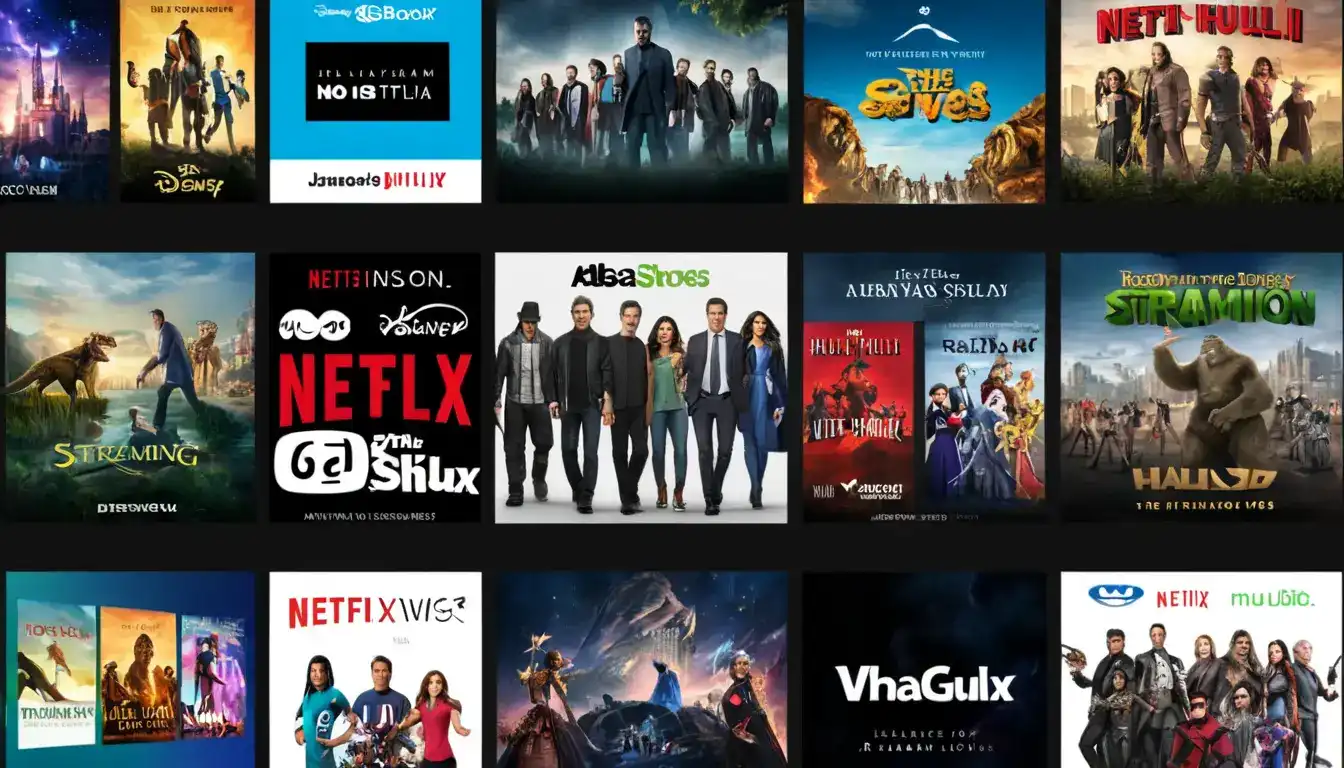
August 4, 2024
The Evolution of Streaming Services Such as Netflix, Disney+, Hulu, and the Implications for the Traditional Entertainment IndustryThe rise of streaming services has revolutionized the entertainment industry, offering on-demand access to a vast library of content through internet-connected devices. Platforms like Netflix, Disney+, and Hulu have diversified their content libraries, reshaped consumer behavior, and challenged traditional distribution models. Technological advancements have enhanced streaming experiences, while economic and cultural implications have led to global market expansion and increased investment in original content production. The future of the streaming industry will be shaped by competition, convergence of media and technology, and the need for adaptation to changing consumer preferences. Embracing digital transformation and strategic partnerships will be crucial for stakeholders in navigating the evolving landscape of modern entertainment.
Emily Willis

August 4, 2024
Virtual Music Concerts: The Future of Live Performance?The music industry has seen significant changes in recent years, with virtual music concerts becoming a popular trend, especially due to the impact of the COVID-19 pandemic. Technological advancements have made virtual concerts more accessible and cost-effective, while also reducing the environmental impact of live events. However, challenges such as technical issues and the lack of physical presence remain. The future of virtual concerts may involve hybrid models that combine virtual and physical experiences, as well as continued technological innovation to enhance the quality of virtual performances. Building a sense of community and engagement will also be crucial for the success of virtual concerts moving forward.
Emily Willis
Health
View Allsleep for physical and mental well-being, discussing the benefits of sleep such as physical restoration, brain function, emotional regulation, concentration, and reduced risk of chronic diseases. It explains the different stages of the sleep cycle and provides guidelines for how much sleep individuals of different ages need.
Emily Willis
Heart disease is a leading cause of death globally, but early detection and prevention strategies can reduce its impact. This article discusses the importance of early detection, common risk factors, preventive measures, and lifestyle changes for heart health. Understanding heart disease, recognizing symptoms, and undergoing regular screenings are crucial. Common risk factors include high blood pressure, high cholesterol, diabetes, smoking, obesity, physical inactivity, and family history. Symptoms of heart disease include chest pain, shortness of breath, fatigue, irregular heartbeat, and swelling. Diagnostic tests and screenings include blood pressure measurement, cholesterol screening, blood glucose test, ECG, stress test, and imaging tests. Preventive measures include adopting a heart-healthy diet, regular physical activity, quitting smoking, managing stress, maintaining a healthy weight, and limiting alcohol consumption. Medications and treatment options may be necessary for individuals at high risk or diagnosed with heart disease.
Emily Willis
The healthcare landscape is being transformed by technological advancements, with telehealth and remote care providing convenient access to healthcare services. Artificial intelligence is revolutionizing diagnostics, personalized medicine, and drug discovery. Wearable technology is empowering patients to take control of their health.
Emily Willis
Trending 🔥
View All
1
2
3
6
7
8
9
Sports
View AllAugust 4, 2024
The Importance of Mental Training and Psychological Strategies in Helping Athletes Reach Their Peak Performance on the Field
Read MoreTechnology
View All
August 4, 2024
Latest Trends in Mobile Application Development
latest trends in mobile application development for 2024. These trends include the integration of 5G technology, artificial intelligence and machine learning, Internet of Things (IoT), augmented reality (AR) and virtual reality (VR), cross-platform development, mobile wallets and payment gateways, progressive web apps (PWAs), enhanced app security, voice search and integration, and sustainability and green mobile apps.
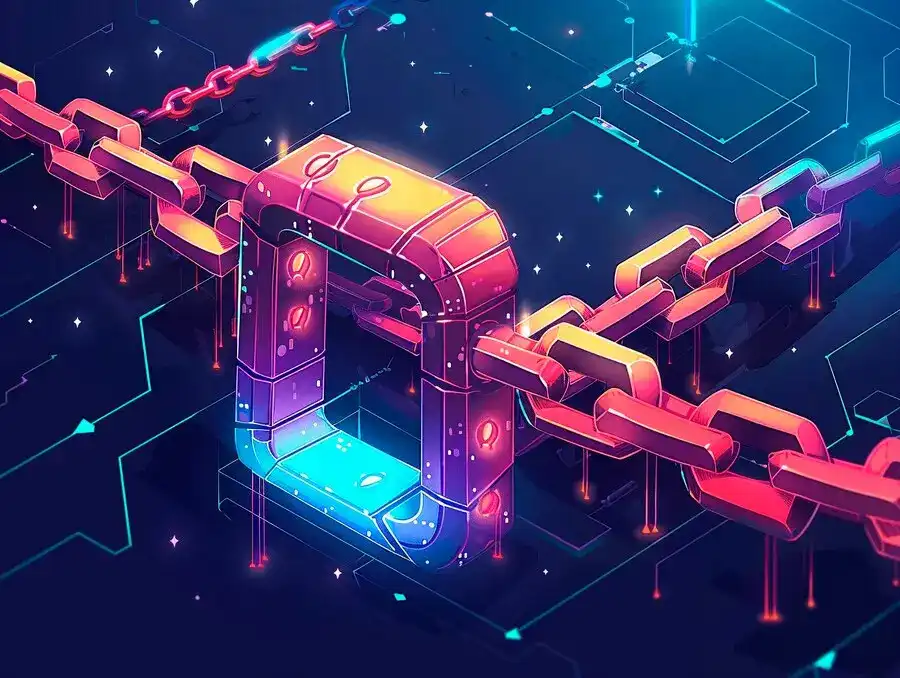
August 5, 2024
Challenges and Barriers in Adopting Blockchain Technology
Blockchain technology has the potential to revolutionize industries with its decentralized and transparent nature, but widespread adoption faces challenges such as scalability issues, interoperability, security concerns, regulatory uncertainty, lack of standards, cost and resource intensiveness, and user experience and education.

August 5, 2024
Top Skills Every Junior Software Developer Should Master in 2024
Meta Description: Discover the top skills junior software developers need to master in 2024 to excel in their careers. From coding languages to soft skills, this blog reveals the secrets to staying ahead in the dynamic world of software development.

August 4, 2024
The Metaverse: A Virtual World with Endless Possibilities
metaverse is a rapidly evolving concept that offers a network of interconnected 3D virtual spaces accessed through technologies like VR and AR.


